
The Best DNA and Ancestry Products Compared
How Many Genes Do Humans Have?
So How Many Genes Do Humans Actually Have?
Advertising Disclosure
Many or all of the companies featured provide compensation to us. These commissions are how we maintain our free service for consumers. Compensation, along with hours of in-depth research, determines where & how companies appear on our site.
Before looking at our AncestryDNA to 23andMe comparison, you probably want to know how many genes you have. Scientists in the past thought that humans had around 50,000 genes, and some actually believed this number was closer to 100,000 or even more. Recent research found that we actually have a much smaller number of just 20,500 genes. Evolutionary scientists found proof that humans evolved over time and the way we look and function today is because of the things that our ancestors once went through. You might find that you have a thin layer of hair on your body because that hair once helped your ancestors stay warm on cold days. Evolutionary scientists also believe that there is a missing link, which is some type of creature or being that ties humans to other types of animals.
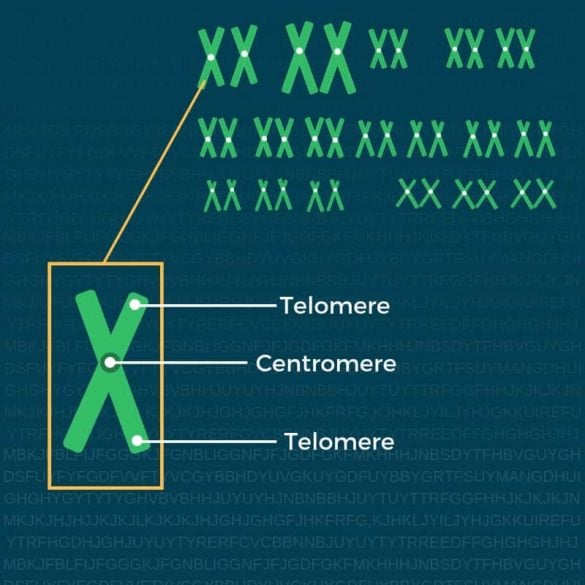
Introduction to Human Genes
Gene is one of the more common words that you might hear when looking at home DNA testing kits. Even if you read over our AncestryDNA review, you’ll see that we mention this term a few times. If you graduated from high school or college more than a few years ago, you probably have no idea of what a gene is or what it does. Every human being has cells that consist of genes, nuclei and other parts. Genes are essentially the building blocks that determine what color eyes or hair you might have. They can also help you grow and tell the cells in your body to do different things.
Genes are an important part of the biological function of your body. The next time that you struggle to fall asleep or lose those few extra pounds around your stomach, you may want to put the blame squarely on your genes. Your genes come from both your biological mother and your biological father. Half of all those genes come from each parent. While your environment can play a key role in your overall development, your genes will also determine a few things. We created this page to help you understand what those genes do and how many you have.
Genes and Inherited Traits
Have you ever looked at your father and noticed that you had the same eye color and hair color as him? This is because the genes that you have allow you to inherit traits from your parents as well as any ancestors that came before them. There are both dominant and recessive genes. A dominant gene is much stronger than a recessive gene and can present itself in a physical way. One way to look at how dominant genes work is with a look at whether you can curl your tongue. This is an example of an inherited trait. If both of your parents can curl their tongues, you should be able to do the same thing. However, if neither of your parents can curl their tongues, you likely cannot do this simple task.
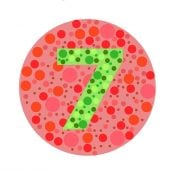
Color blindness is a genetic issue, not something that’s determined by our environment.
Color blindness is another trait that you might demonstrate because of your genes and chromosomes. This is a recessive trait in women and a dominant trait in men. While women can pass color blindness onto their sons, it is extremely rare for a woman to suffer from color blindness herself. You can use the chart below to get a look at whether you suffer from this condition.
What Do Genes Determine?
The genes that you have will essentially determine your appearance, but they can also determine how you act the way you do and relate to some aspects of your personality. As we already explained, you get half of your genetic code from each parent. If both of your parents have dark hair and dark eyes, you’ll probably have dark hair and eyes too. There is a chance that the recessive genes in your family line can come through though. Let’s say that you have ancestors with red hair several generations back in your family line. That recessive gene can result in you having red hair that darkens over time.
These building blocks can also determine your body weight. If you have one parent who is overweight and notice that many people on that side of your family are also overweight, you may have problems controlling your weight too. This often relates to only one gender though. You might find that only the men or the women in your family are overweight and that the opposite sex is thinner. All the genes that you get from your parents can also determine whether you have a sensitivity to caffeine or if you are a morning person or a night owl.
Other Factors That Genes Can Determine
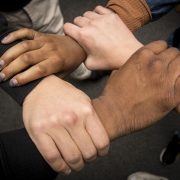

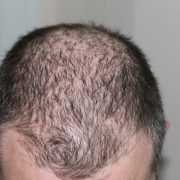
Hair Loss
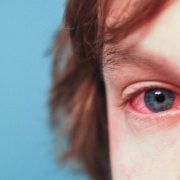

One thing you may not know is that humans are more than 99% the same in terms of their genes. You share the same genes with the people in your family and some genes with the people who live down the street or across the country. Each gene essentially determines what you look like, though some environmental factors can also determine your appearance.
Genetic Mutations
The superheroes from comic books and films called the X-Men suffer from genetic mutations. Those mutations let them heal quickly and bend metal with their minds. While you probably can’t read minds or control the abilities of others, you may suffer from one or more genetic mutations. During your body’s development, your genes will divide and multiply several times. Any number of things can affect that division and cause mutations to form. Those mutations can occur because your mother drank or smoked while pregnant or because she worked around toxic chemicals or radiation. Some of these mutations can also cause severe genetic disorders.
One example of a genetic disorder is Tay-Sachs disease, which a disease passed down through Jewish families. This disorder causes a number of different symptoms and leads to babies dying soon after they’re born or a few years later. Sickle cell anemia is another disorder that can occur as a result of a genetic mutation. This can leave you feeling so tired that you have a hard time getting out of bed and can result in lengthy hospital stays. The average human has a minimum of five genetic mutations, but most of those mutations cause little to no symptoms.
Symptoms of Sickle Cell Anemia
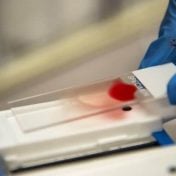

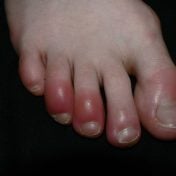


23andMe and Health Screenings
In our 23andMe vs. AncestryDNA comparison, we talked about the health and wellness screenings available from 23andMe. MyHeritage and similar companies do not offer any health screenings. When you sign up for the 23andMe testing, you’ll need to pay one price for the DNA test and a separate price for the health testing. These tests now look at your genes to determine whether you have an increased risk of developing common medical conditions such as Celiac disease and Alzheimer’s disease. It also gives you wellness reports that explain whether you have a predisposition for weight gain or early hair loss.
Many people also like this test because of the carrier information that it shares. No matter how much you know about your family, you may not know whether you carry genes that you can pass onto your children. The carrier reports offered by 23andMe show you whether you are a carrier for sickle cell anemia and other conditions caused by genetic mutations in your bloodline. You can also use this test to get a trait report. 23andMe will examine your genes to decide whether you have the traits that can result in a unibrow or a love or salty foods.
Traits Shown by 23andMe


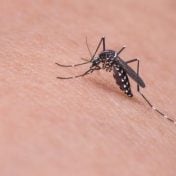

Changes

Genes and Other DNA Tests
An interest in genealogy can make you want to check the records available from Ellis Island to see where your ancestors immigrated from and when they came to the United States. It can also lead you to check out local libraries and look for one of the genealogy centers operated by the Mormon Church to learn as much as possible about your family. A more convenient way to find hardcore facts and proof of your family line is with a DNA test such as the AncestryDNA kit. Our AncestryDNA review goes over some of the biggest benefits of using this test. You can find similar information in our MyHeritage DNA review.
Though these kits do not include the health and wellness screenings offered by 23andMe, each one does do a good job of examining your genes and showing what they found. Your results will come in the form of a digital report that you can view online after accessing your account. The report will include a map of the world that shows different colors based on the percentage of your genes that relate to each region or country. You also have the option of using the site’s forums and resources.
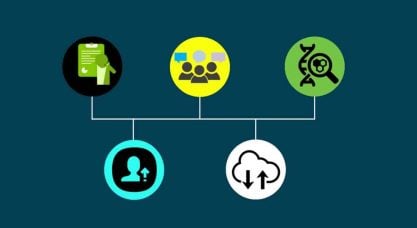
Features of the Top DNA Test Kit Sites
- Public record searches
- Forums where members can connect
- Automatic matches found for you
- Access to any future upgrades or matches
- Ability to download and/or upload your reports
Genetic Testing
Our genealogy guide for beginners gives you some good information on how to start your family tree and how to add more branches as you find out about your ancestors. Not only can you get a good overview of some of the at-home DNA kits, but you can also view resources that will help you find more info once you know where your family came from and some other basic details about them.
Every human being has both genes and chromosomes that can determine whether they look more like one parent over another or how quickly they tan while outside. Your hair, eye and skin color also relate to your genes as do your risks of developing common and rare medical conditions. Once you know more about your genes, you can begin doing some serious research into your family.
Did You Know?
Nearly every person in the world has some African genes in them. Scientists generally believe that humans descended from the African continent as far back as 200,000 years in the past.

